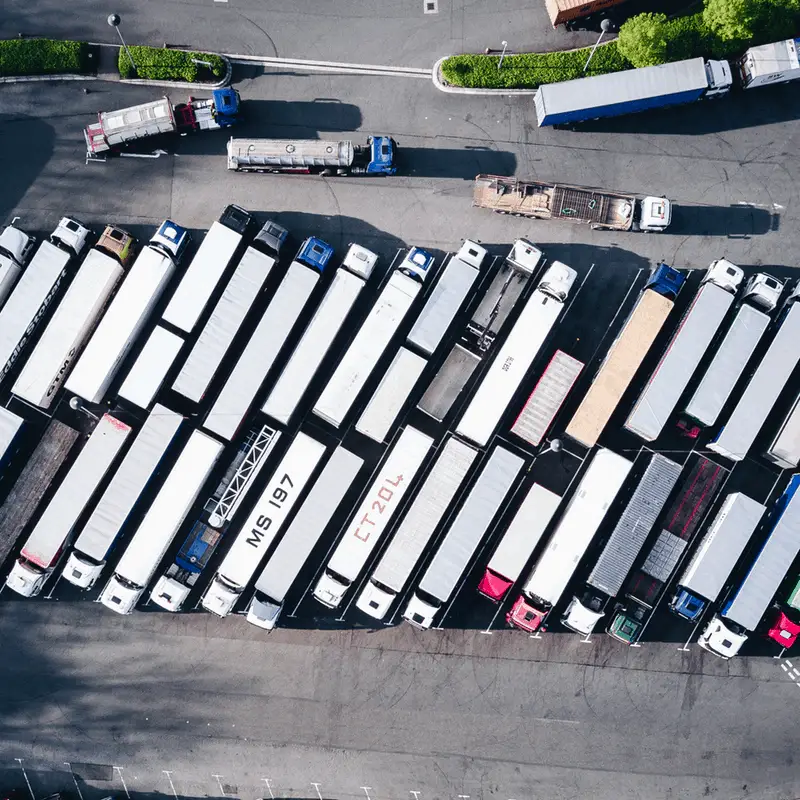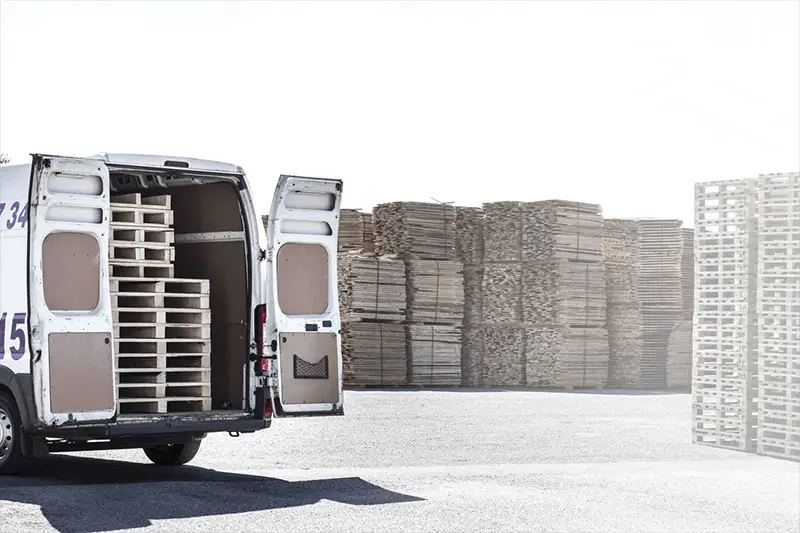Click here to get this post in PDF
The delivery and transportation industry is no stranger to being an area where massive strides in sustainability can be made. CO₂ emissions in the transport sector account for approximately 23% of all man-made emissions globally. There is a widespread agreement that emissions from the transport sector should be reduced over 50% by 2050.
From a sustainability point of view alone, making the delivery services of your business ‘green’ is essential. It makes financial sense too. It is not without challenge though. Ensuring the storage, transportation and logistics of getting goods and components to the right place, at the right time, with minimal impact on the environment, is difficult. However, it is do-able if you know how.

Why do sustainable delivery services make sense?
Exemplary performance in the supply chain, as a whole, increases profits and reduces costs, overall. It also ensures greater efficiency and enhanced customer service. Introducing sustainable practice in delivery services only serves to enable high-performance.
In a world where those reliant on delivery services are themselves under pressure to drive sustainability, no one is immune. Whilst your clients and customers have to meet compliance requirements, you do too. Being able to offer sustainable logistics practices, such as reusable packaging or efficient loading, enables you to offer the service being expected.
Additionally, it is also possible to lower your own costs through increased efficiency, which in turn benefits sustainability. Over time, as the supply of fossil fuels decreases, whilst its cost increases, we will all need an alternative, ‘greener’, solutions to our logistics problems.
How to achieve sustainability in delivery services?
There are some key areas we need to address:
- Work to improve energy efficiency in the logistics networks:
The logistics industry as a whole needs to tackle efficiency on a global scale. At the moment, a vast amount of resources are wasted through ‘doubling-up’. Organisations such as the Smart Freight Centre are working together to increase efficiency in the industry as a whole.
- Reduce waste:
It is important to reduce waste on a wide range of levels. This includes a reduction in wasted space (in delivery transport and warehouses), as well as waste through poor inventory management, packaging and fuel.
- Optimisation of transportation routes:
GPS services are helping to optimise transportation routes to help with our green aims. However, further optimisation is required to truly create efficiency in our delivery services.
- Optimisation of delivery loads:
Just-in-time delivery can be tricky to manage with optimal delivery loads. Shared logistics can sit alongside shared warehousing, to reduce wasted space, ensuring vehicles travel at maximum capacity where possible.
- Use of lighter weight and reusable pallets and containers:
Reduced weight in storage and transportation tools, in turn, reduces the need for excessive fuel use. Innovations in storage and transportation are required to become ‘greener’.
- Better management of return processes:
The e-commerce marketplace is dependent on straight-forward returns systems. Investigate how this impacts the sustainability of our delivery services and consider modifying the return processes.
- Reduction in packaging:
In the EU, we produce 166.3kg of packaging waste per inhabitant each year. The majority of this is paper and cardboard (34.8 million tonnes), but 15.9 million tonnes is plastic. Reducing the amount of packaging needed is of vital importance.
- Improved sustainable packaging:
This will only be possible by improving the type and availability of sustainable packaging available. Putting pressure on packaging suppliers to create more sustainable packaging products suited to your needs is crucial.
- Optimisation of warehouse efficiency and productivity through automation:
Automation enables us to become more efficient in a vast number of ways. Seeking to incorporate automation appropriately within your delivery service will also improve sustainability.

These changes to your delivery service bring a range of benefits: environmental, social and financial ones. They will ensure the increased energy efficiency combined with reduced energy use and reduced waste and fossil fuel consumption along with emissions. The improvement in the sustainability of logistics helps to reduce noise and traffic congestion, improves health and safety, and underlines your Corporate Social Responsibility (CSR) goals. Finally, sustainability initiatives in logistics should also result in increased revenue, alongside reduced costs, as well as increased customer service.
Steps to take in your delivery service
Every delivery service has its unique needs and goals, within the overriding objectives of the whole business. Taking the above list of ways to make delivery services greener, you can carry out an audit of your current practices. This can then be used to introduce changes which enhance sustainability.
Some examples of small steps towards making your delivery services greener include:
- Choose packaging wisely: Opt only for what is necessary, and of a recycled (and recyclable) nature. Consider more sustainable packaging options than Styrofoam (not eco-friendly) for padding, such as corrugated inserts. Put pressure on your suppliers to do the same.
- Reduce size where possible: Using the smallest packaging appropriate to a delivery, ensures it takes up less space, reducing the carbon footprint of each delivery. It also enhances your profitability.
- Use third-party logistics focused on green credentials: If you are frequently running part-full delivery services you may do better, both financially and environmentally, to outsource. With technological advances, you don’t need to compromise on your next-day delivery protocols or customer service levels.
- Offsetting your carbon footprint: Some businesses boost their reputation by offsetting the environmental impact of their delivery services by incorporating a ‘payback’ which is given to renewable energy resources and their development.
- Rewrite your returns policy: Look at your returns policy to see how this can be made ‘greener’ without compromising customer service. For example, for low-cost items, you may be able to issue a replacement without requiring the return.
It is essential that businesses start taking steps to improve the sustainability of their delivery services. It benefits you too, in terms of brand differentiation, reduced costs, reputational standing, and more.
You may also like: Significant Processes Involved In Business Setup of Logistics

[…] You may also like: How to Turn the Delivery Services of a Company Green […]